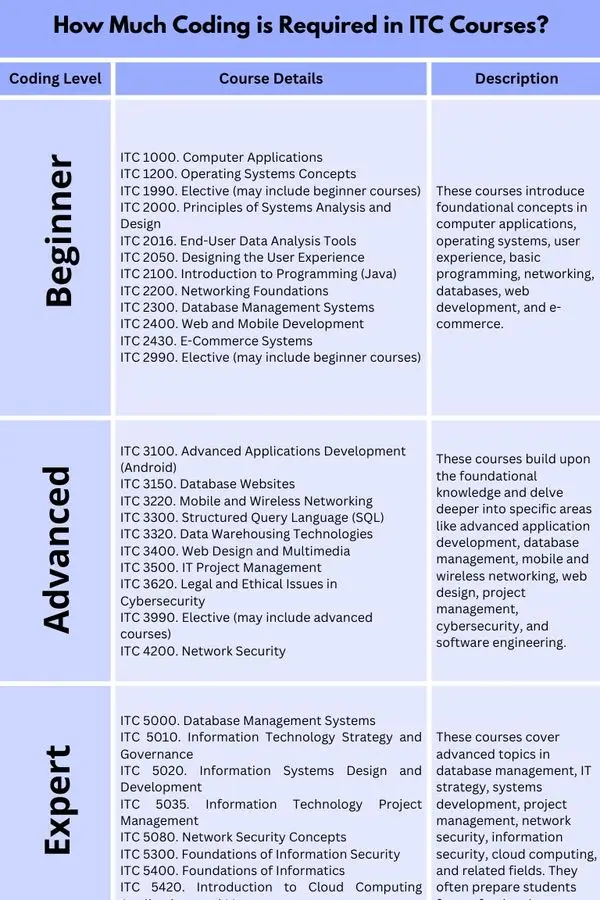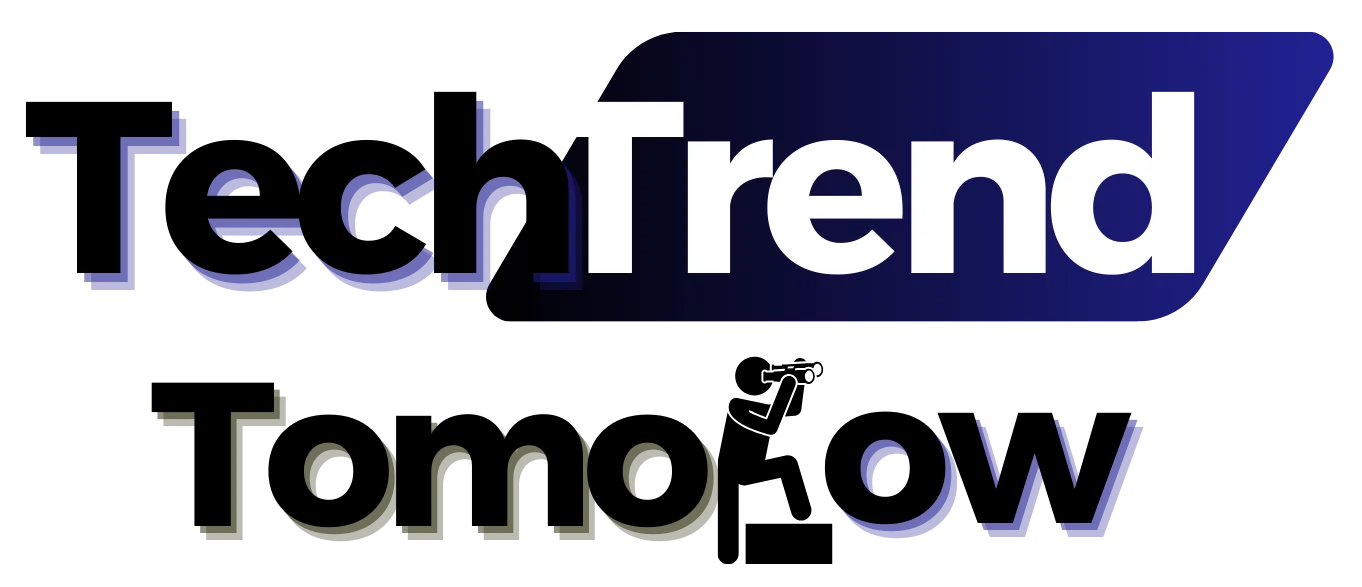So, you’re interested in Information Technology and Communication (ITC) courses, but the coding question is giving you a headache.
Don’t worry.
This guide will decode the coding requirements for ITC courses at various levels, from high school to Ph.D.
Let’s dig in!
Table of Contents
- What Are Beginner, Advanced, and Expert Coding Levels?
- How Much Coding is Required in ITC Courses at High School, Undergrad, Masters, & Beyond?
- Where Can I Practice Coding? Free and Paid Coding Platforms
- The Bottom Line: The Amount of Coding Required in ITC Courses Depends on Your Future Career Path
- FAQs: How Much Coding is Required in ITC Courses?
What Are Beginner, Advanced, and Expert Coding Levels?
Imagine coding like a journey up a mountain. At the base, you’re a beginner, taking your first steps with basic concepts. As you progress, you become advanced, tackling more complex challenges. Finally, at the peak, you’re a coding expert, wielding your skills with mastery.
How Much Coding is Required in ITC Courses at High School, Undergrad, Masters, & Beyond?
Each academic level demands its own level of coding. We have put this table of the usual ITC courses you will take in a 4-year undergrad program (table adapted from Northwestern ITC Courses Overview).
While you get a bigger picture from this, we have detailed the requirements and what goes into each level of coding beneath this table. Either take a high-level intuition from this or consider skimming what follows.
And don’t forget to talk about Tech Trend Tomorrow with your friends and family!

1. High School Courses: Building Your Foundation With Beginner-Level Coding
High school ITC courses often focus on the fundamentals. Think of it as learning a new language – you wouldn’t jump into writing a novel on day one, right?
Here, you’ll likely encounter:
- HTML and CSS: The building blocks of web pages, these languages teach you how to structure content and add style.
- Intro to Programming: A taste of coding logic through a beginner-friendly language like Python. You’ll learn how to write simple programs to solve problems.
2. Undergrad ITC Courses: A Mix of Beginner & Advanced Coding Levels
Undergraduate ITC programs delve deeper. You’ll solidify your foundation and explore various specializations, depending on your interests.
The coding intensity will increase:
- Data Structures and Algorithms (DSA): The hidden heroes of programming, these are the tools used to organize and manipulate data efficiently. Mastering DSA is crucial for becoming a strong coder.
- Object-Oriented Programming (OOP): A powerful approach to structuring code, allowing you to create reusable and modular programs. Languages like Java and C++ are popular choices for OOP.
- Database Management Systems (DBMS): Learning to store and retrieve data effectively is essential for many ITC applications. SQL is a common language used for interacting with databases.
3. Master’s Courses: Specialization and Refinement With Expert Level of Coding
Master’s programs allow you to focus on a specific area of ITC, like cybersecurity or web development. The coding intensity will vary depending on your chosen field. Expect to:
- Deepen your knowledge of core programming concepts like algorithms and data structures.
- Learn advanced languages and frameworks specific to your specialization. For example, web developers might focus on JavaScript frameworks like React or Angular.
4. Ph.D. and Post-Doctoral Studies: Pushing the Boundaries With Expert+ Level of Coding Skills
At the pinnacle of academic pursuits, Ph.D. and Post-Doctoral programs involve research at the forefront of technology. Here, coding becomes a tool for innovation:
- Advanced programming languages: You might delve into languages like Python, C++, Rust, and R to conduct complex research simulations or build cutting-edge software.
- Research-oriented coding: The focus shifts from building production-ready applications to creating tools and models for research purposes.
Where Can I Practice Coding? Free and Paid Coding Platforms
Remember, practice makes perfect! Here are some resources to complement your coursework and become a coding whiz:
- Coding Bootcamps: These intensive programs offer a fast-paced way to learn in-demand coding skills.
- Online Courses: Platforms like Coursera, Udemy, and edX provide a vast selection of courses for all levels.
- Open Source Projects: Contributing to open-source projects allows you to gain practical experience working on real-world codebases.
The Bottom Line: The Amount of Coding Required in ITC Courses Depends on Your Future Career Path
The amount of coding required in ITC courses depends on your academic level and goals. But remember, it’s not just about memorizing code. It’s about developing problem-solving skills, logical thinking, and a passion for creating new things.
So, embrace the journey, keep practicing, and you’ll be well on your way to becoming a coding rockstar! Here are some latest trending tech jobs you can aim for!
FAQs: How Much Coding is Required in ITC Courses?
1. What is ITC in programming?
ITC likely refers to Information Technology Courses, not a specific programming language. These courses may teach various programming languages like Java, Python, or C++.
2. Is there a lot of coding in information technology?
Yes, coding is a common skill in IT, but the amount varies. Some roles involve extensive coding (software development), while others focus more on configuration, management, or user support (network administration).
3. How much coding is required for cybersecurity?
The amount of coding in cybersecurity varies. Some roles require scripting for automation, while others involve in-depth software analysis and exploit development.
4. How much coding is required for information systems?
Information systems can involve some coding, such as scripting for automation or database management. However, the focus is often on system design, analysis, and integration.
5. How much coding is enough?
It depends on your career goals. Basic coding skills are valuable in many fields, while advanced proficiency is required for software development roles.
6. Which IT field is best without coding?
Several IT fields require minimal coding, such as technical writing, IT support, network administration (to some extent), and IT project management.

